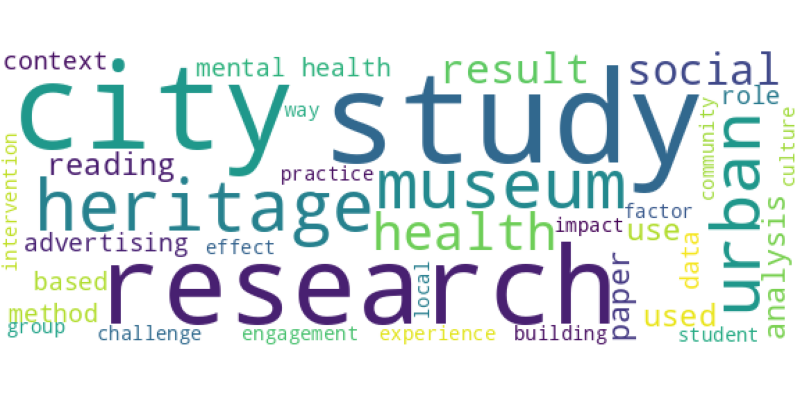| Id | 2235 | |
| Author | Sung M. | |
| Title | Influences of Rural Heritage on Resident Participation in Community Activities: A Case Study of the Villages of Jeoji-ri and Handong-ri on Jeju Island, South Korea | |
| Reference | Sung M. Influences of Rural Heritage on Resident Participation in Community Activities: A Case Study of the Villages of Jeoji-ri and Handong-ri on Jeju Island, South Korea,Journal of People, Plants, and Environment 25 2 |
|
| Link to article | https://www.scopus.com/inward/record.uri?eid=2-s2.0-85130988423&doi=10.11628%2fksppe.2022.25.2.177&partnerID=40&md5=551d2eaa396b6a10cd36869e479c8582 |
|
| Abstract | Background and objective: Recent research on cultural heritage has highlighted resident participation as an ideal method of managing local cultural heritages. However, many studies have raised questions about the practicality of this approach. This research undertook case studies of Jeoji-ri and Handong-ri on Jeju Island, South Korea focusing on how resident participation increases based on the related stakeholders, local heritages (natural, tangible and intangible cultural heritages) and social capital (trust and networking). Methods: Sixty-one completed questionnaires were collected from adult residents of both villages (28 from Jeoji-ri and 33 from Handong-ri), and the resulting quantitative data were analysed using the Statistical Package for the Social Sciences (SPSS) and the R programming language. In addition, two semi-structured interviews were undertaken with the leaders of each village, and the resulting qualitative data were analysed thematically. Results: The study found that the village leaders of Handong-ri and Jeoji-ri successfully encouraged trust and participation among village residents, suggesting that resident participation is largely influenced by the relevant stakeholders and the social capital of residents. Networking and intangible cultural heritages, such as rituals or village oral traditions, positively influence resident participation. Conclusion: This study suggests that the active utilisation of intangible cultural heritages and the networks developed by cooperating with essential stakeholders are vital for encouraging resident participation. © 2022 by the Society for People, Plants, and Environment. |
|
| Keywords |
Wordcloud:



